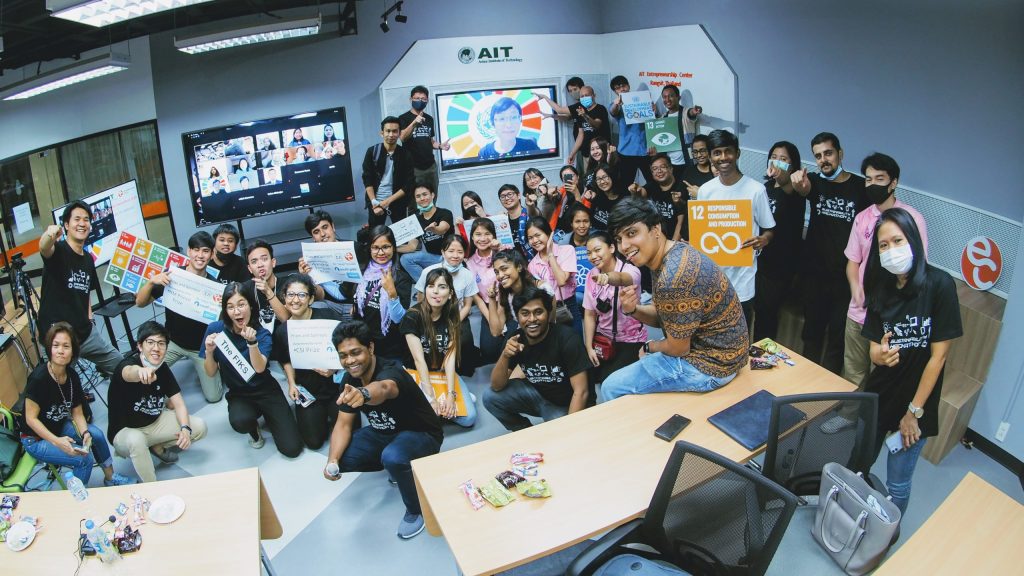Ever wondered how to ignite innovation in sustainability while tapping into Dubai’s vibrant tech scene? Organizing a green tech hackathon here offers a unique opportunity to unite diverse minds in creating impactful solutions for a greener future.
Understanding Dubai’s Sustainability Landscape
Dubai has rapidly positioned itself as a hub for green innovation, with initiatives like the Dubai Clean Energy Strategy 2050 aiming to make 100% of its energy production clean by mid-century. Events such as the CleanTech Hackathon, organized by DEWA’s Sustainability & Innovation Centre, have attracted participants from over seven countries, focusing on themes like desalination, decarbonization, and digitalization.
Defining Clear Objectives and Themes
A successful hackathon starts with a well-defined purpose. Whether it’s to develop AI-driven solutions for energy efficiency or to create sustainable urban planning tools, having a clear theme guides participants and attracts relevant stakeholders. For instance, the UAE Hackathon 2025 focused on integrating eco-friendly technologies into digital transformation efforts, aligning with national priorities like the Green Agenda 2030.
Selecting the Right Venue
Choosing an appropriate venue is crucial. Dubai offers a plethora of spaces suitable for hackathons, from the Dubai World Trade Centre, which hosts large-scale events like Expand North Star, to more specialized venues like DEWA’s Sustainability & Innovation Centre. The choice depends on the scale of your event and the facilities required.
Engaging Stakeholders and Participants
Collaborating with local organizations, universities, and government bodies can enhance the hackathon’s impact. Partnerships with entities like the Telecommunications and Digital Government Regulatory Authority (TDRA) can provide access to resources and networks. Additionally, involving mentors and judges from diverse backgrounds ensures a comprehensive evaluation of projects.
Structuring the Hackathon
A typical hackathon spans 24 to 48 hours, but the planning phase should begin at least 4 to 8 weeks in advance. Key stages include:
- Pre-event Planning: Define objectives, secure partnerships, and promote the event.
- Event Execution: Facilitate team formation, provide mentorship, and ensure logistical support.
- Post-event Follow-up: Offer opportunities for project incubation and maintain engagement with participants.
For example, the CleanTech Hackathon’s third cycle involved online pitching sessions, followed by an exhibition at DEWA’s centre, providing participants with exposure to investors and industry leaders.

Incorporating Local Regulations and Cultural Nuances
Understanding and adhering to local regulations is essential. Ensure compliance with data protection laws and obtain necessary permits for the event. Additionally, being mindful of cultural practices, such as prayer times and dietary restrictions, demonstrates respect and inclusivity.
Leveraging Technology and Sustainability
Integrate sustainable practices into the event itself. Utilize digital platforms for registration and communication to reduce paper usage. Encourage participants to develop solutions that are not only innovative but also environmentally responsible.
Providing Incentives and Recognition
Offering rewards and recognition can motivate participants. While monetary prizes are common, opportunities for project incubation, mentorship, and exposure to potential investors can be equally valuable. For instance, winners of the CleanTech Hackathon were granted the chance to exhibit their solutions at DEWA’s Sustainability & Innovation Centre.
Ensuring Long-term Impact
A hackathon should be more than a one-off event. Establishing a framework for ongoing support, such as connecting teams with accelerators or providing resources for further development, ensures that innovative solutions have the potential to be implemented and scaled.
Final Thoughts
Organizing a sustainability hackathon in Dubai requires meticulous planning, collaboration, and a deep understanding of the local context. By focusing on clear objectives, engaging stakeholders, and fostering an environment of innovation, such events can contribute significantly to the city’s sustainable development goals.
This guide has been prepared by the www.few.ae team, drawing on insights from successful green tech hackathons in Dubai.
